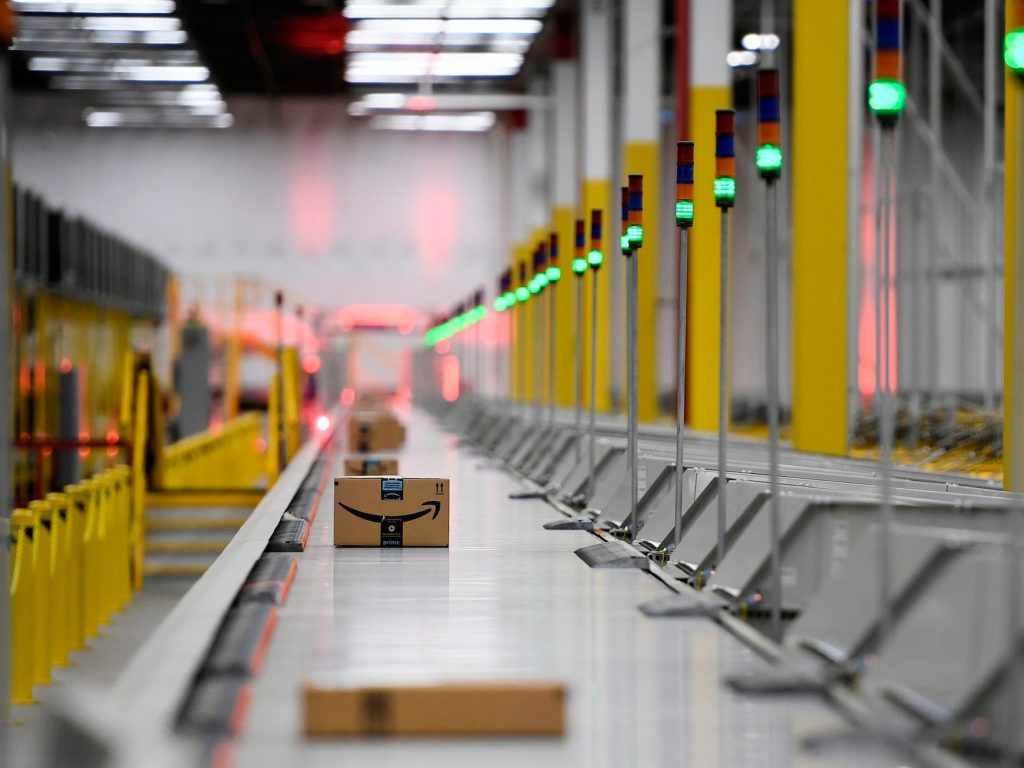- After an Amazon employee died in a warehouse last month, the company has reportedly added a new AC system.
- Workers said they believed overheating in the warehouse contributed to the employee's death.
- Amazon said its investigation found the employee's death was not related to working conditions.
Amazon has added a new AC system and extra fans to a warehouse in New Jersey where a worker died last month, warehouse employees told NBC News.
Rafael Reynaldo Mota Frias died at Amazon's EWR9 warehouse in Carteret, New Jersey on July 13 during Amazon's busy "Prime Day" period, reportedly due to a heart attack.
Coworkers told The Daily Beast they believed working conditions in the warehouse, including overheating, may have contributed to Frias's cardiac arrest. An Amazon spokesperson denied this to The Daily Beast.
"Our internal investigation has shown that this was not a work-related incident, and instead was related to a personal medical condition," the spokesperson said.
Amazon did not immediately respond to Insider's request for comment ahead of publication.
Three employees at EWR9 told NBC that Amazon upgraded the AC system weeks after Frias's death, and shared photos of the system with NBC News. They added more fans had been added to the warehouse.
An Amazon spokesperson told NBC News: "Our climate control systems constantly measure the temperature in our buildings, and our safety teams are empowered to take action to address any temperature-related issues."
The Occupational Safety and Health Administration launched an investigation into Frias' death. Amazon is already being investigated by OSHA and federal prosecutors for potential worker safety hazards in warehouses around the country.
Last week, dozens of Amazon employees at the Amazon Air Regional Air Hub walked out in San Bernardino for reasons including "illness-inducing heat."
Workers at the warehouse where Frias worked said managers started giving out snacks and encouraged work breaks after he died, NBC News reported.
"Amazon is an agency that reacts to situations," a worker told NBC News. "They're not proactive. They wait till something happens and then they act like they're doing something."
